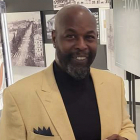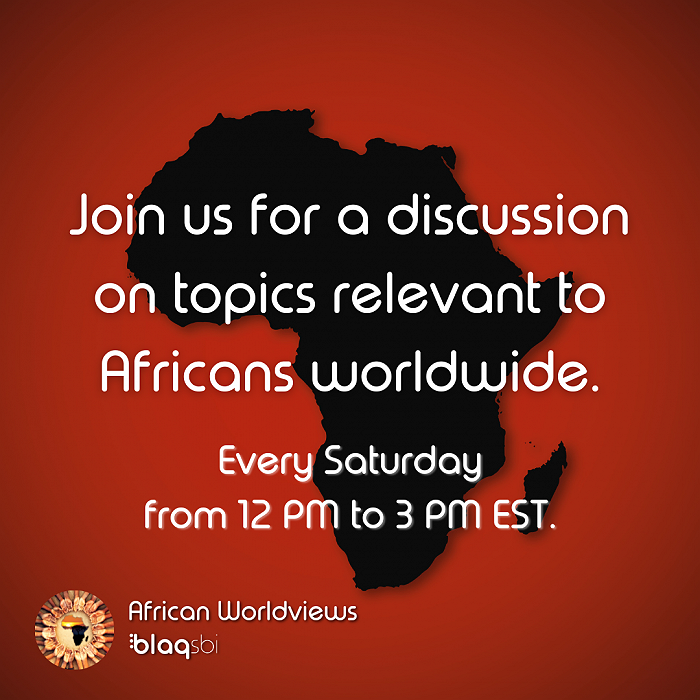Understand the Pineal Gland produces not only Melanin but also Melatonin which helps regulate sleep.
Melatonin increases the deeper stages of sleep and stage four sleep.
As sleep patterns are improved, it serves to energize the body and improve mood.
Melatonin has antioxidant effects which help in preventing disease qualities.
Melatonin controls over stimulation of the sympathetic nerves to lower blood pressure and slow the heart rate, thus reducing the impact on heart.
It also alleviates mental stress, improves sleep and adjusts the body’s biological clock, strengthens immunity and increases body’s resistance to infections and viruses.
The pineal gland is stimulated to make and release melatonin in the dark, which is why I use a sleep mask!
The production of melatonin is reduced in day light. The retina detects the light and directly signals and entrains the suprachiasmatic nucleus (SCN).
The circadian signals are relayed to the spinal cord and out via the sympathetic system to superior cervical ganglia (SCG) and from there into pineal gland when fibers project from the SCN to the paraventricular nuclei (PVN).
It has been suggested that melatonin is beneficial in the treatment of jet lag, reduces the development of cancerous cells and slows down the aging process.
[ I'M SURE YOU HAVE ALL HEARD... BLACK DON'T CRACK 😉 ]
Melanin is important because it’s the most primitive and universal pigment in living organisms.
Melanin is abundantly found in primitive organisms such as fungi, as well as advanced primates.
Furthermore, within each living organism, melanin appears to be located in the major functional sites.
For example, in vertebrates, melanin is not only present in the skin, eyes, ears, central nervous system, it can also be found in the pineal gland, pituitary gland, thyroid gland, thymus gland, adrenal gland, and the barathary gland.
Melanin is abundantly present in the viscera, including the heart, liver, arteries, the muscles, and the gastrointestinal tract; thus, within each and every living organ which aids the human body melanin appears.
Regardless of what color your skin appears to be, all genes, in all creatures on this planet are black because it is internal and we are coated with melanin.
The amount of melanin in the skin is one of the most variable of human traits, and many polygenes are involved.
Groups of people or the population of the world were once classified according to the skin shade: Black (Nubians), White (Caucasians), Yellow (Orientals) and Red (Native Americans) etc... We must realize that just because this is the way they have classified people does not mean this is the way it should be.
The hues of color of your skin depend on several factors. First is the amount of melanin in the outer layers of the skin.
Melanin acts as a filter to prevent damage to the delicate deeper layers of the skin, by penetration of ultraviolet light; you should see what sunscreen actually does to your skin 😉
There is more than one type of melanin.
You have brain melanin, also known as neuromelanin, and you have skin melanin.
The pineal gland contains number of peptides, including TRH, GnRH, and vascotin, along with number of neurotransmitters such as serotonin, somatostatin, histamine and nor-epinephrine.
Neuromelanin does not run parallel with skin melanin!
Whether white, red, yellow, black, or brown, neuromelanin plays an important role in functioning of the brain, and nervous system.
Melanosomes (small structures within the melanocyte cells where melanin is synthesized) find their way into the hair cells, giving them color (Two types of melanin, one dark brown and one red, are responsible for all hair shades).
Pigments that contribute to skin color are called carotene, a yellowish hemoglobin, in blood vessels (pink-red), and melanin (black, brown, red).
Darker skins are dominated by melanin, which is produced from the amino acid tyrosine, by pigment cells (melanocytes) in the skin.
Melanocytes are characterized by long, fixed extensions of the outer cell membrane.
In humans, other mammals, and birds, melanin is dispersed permantely throughout each melanocyte, including the extensions, and is also, transported to nearby skin cells.
In other words, if you increase the amount of melanin in the skin you become darker and vice versa.
So, what is so important about melanin?
Melanin controls all mental and physical body activities.
Melanin is an extremely stable molecule, and highly resistant to the digestion by most acids and bases, and is one of the hardest molecule to ever be analyzed.
If you do not purify your melanin molecule, you will not heal your body of diseases.
Now, you might be asking yourself what does melanin have to do with ultra-violet light?
Well, the DNA molecules are all covered with melanin.
One of the things that melanin does is it actually absorbs ultraviolet radiation. Melanin is constantly reaching out towards the ultraviolet rays of the sun.
Ultraviolet radiation has been found to be dangerous to protein. When protein is passed through ultraviolet radiation it actually causes the molecule to blend.
Melanin protects you from UV Ray's while absorbing the energy from these wavelengths!
Your body has committed itself to creating melanin so you can survive.
The melanin in your body is always partial charged. When you look around things like sound, light, sunlight, or colors, the melanin will absorb the additional energy, and recharge itself, taking your body to another level.
If you’re around sounds that aren’t good for you, your body reacts to it.
Your melanin can convert light energy to sound energy!!
THERE IS A REASON MELANIN COST ALMOST $400 per GRAM!!!!
Melatonin increases the deeper stages of sleep and stage four sleep.
As sleep patterns are improved, it serves to energize the body and improve mood.
Melatonin has antioxidant effects which help in preventing disease qualities.
Melatonin controls over stimulation of the sympathetic nerves to lower blood pressure and slow the heart rate, thus reducing the impact on heart.
It also alleviates mental stress, improves sleep and adjusts the body’s biological clock, strengthens immunity and increases body’s resistance to infections and viruses.
The pineal gland is stimulated to make and release melatonin in the dark, which is why I use a sleep mask!
The production of melatonin is reduced in day light. The retina detects the light and directly signals and entrains the suprachiasmatic nucleus (SCN).
The circadian signals are relayed to the spinal cord and out via the sympathetic system to superior cervical ganglia (SCG) and from there into pineal gland when fibers project from the SCN to the paraventricular nuclei (PVN).
It has been suggested that melatonin is beneficial in the treatment of jet lag, reduces the development of cancerous cells and slows down the aging process.
[ I'M SURE YOU HAVE ALL HEARD... BLACK DON'T CRACK 😉 ]
Melanin is important because it’s the most primitive and universal pigment in living organisms.
Melanin is abundantly found in primitive organisms such as fungi, as well as advanced primates.
Furthermore, within each living organism, melanin appears to be located in the major functional sites.
For example, in vertebrates, melanin is not only present in the skin, eyes, ears, central nervous system, it can also be found in the pineal gland, pituitary gland, thyroid gland, thymus gland, adrenal gland, and the barathary gland.
Melanin is abundantly present in the viscera, including the heart, liver, arteries, the muscles, and the gastrointestinal tract; thus, within each and every living organ which aids the human body melanin appears.
Regardless of what color your skin appears to be, all genes, in all creatures on this planet are black because it is internal and we are coated with melanin.
The amount of melanin in the skin is one of the most variable of human traits, and many polygenes are involved.
Groups of people or the population of the world were once classified according to the skin shade: Black (Nubians), White (Caucasians), Yellow (Orientals) and Red (Native Americans) etc... We must realize that just because this is the way they have classified people does not mean this is the way it should be.
The hues of color of your skin depend on several factors. First is the amount of melanin in the outer layers of the skin.
Melanin acts as a filter to prevent damage to the delicate deeper layers of the skin, by penetration of ultraviolet light; you should see what sunscreen actually does to your skin 😉
There is more than one type of melanin.
You have brain melanin, also known as neuromelanin, and you have skin melanin.
The pineal gland contains number of peptides, including TRH, GnRH, and vascotin, along with number of neurotransmitters such as serotonin, somatostatin, histamine and nor-epinephrine.
Neuromelanin does not run parallel with skin melanin!
Whether white, red, yellow, black, or brown, neuromelanin plays an important role in functioning of the brain, and nervous system.
Melanosomes (small structures within the melanocyte cells where melanin is synthesized) find their way into the hair cells, giving them color (Two types of melanin, one dark brown and one red, are responsible for all hair shades).
Pigments that contribute to skin color are called carotene, a yellowish hemoglobin, in blood vessels (pink-red), and melanin (black, brown, red).
Darker skins are dominated by melanin, which is produced from the amino acid tyrosine, by pigment cells (melanocytes) in the skin.
Melanocytes are characterized by long, fixed extensions of the outer cell membrane.
In humans, other mammals, and birds, melanin is dispersed permantely throughout each melanocyte, including the extensions, and is also, transported to nearby skin cells.
In other words, if you increase the amount of melanin in the skin you become darker and vice versa.
So, what is so important about melanin?
Melanin controls all mental and physical body activities.
Melanin is an extremely stable molecule, and highly resistant to the digestion by most acids and bases, and is one of the hardest molecule to ever be analyzed.
If you do not purify your melanin molecule, you will not heal your body of diseases.
Now, you might be asking yourself what does melanin have to do with ultra-violet light?
Well, the DNA molecules are all covered with melanin.
One of the things that melanin does is it actually absorbs ultraviolet radiation. Melanin is constantly reaching out towards the ultraviolet rays of the sun.
Ultraviolet radiation has been found to be dangerous to protein. When protein is passed through ultraviolet radiation it actually causes the molecule to blend.
Melanin protects you from UV Ray's while absorbing the energy from these wavelengths!
Your body has committed itself to creating melanin so you can survive.
The melanin in your body is always partial charged. When you look around things like sound, light, sunlight, or colors, the melanin will absorb the additional energy, and recharge itself, taking your body to another level.
If you’re around sounds that aren’t good for you, your body reacts to it.
Your melanin can convert light energy to sound energy!!
THERE IS A REASON MELANIN COST ALMOST $400 per GRAM!!!!













